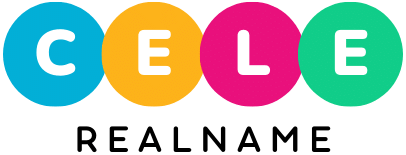Every child develops communication skills at their own pace, but some face challenges that require professional support. Difficulty with speech, language, or social interaction can impact confidence, learning, and daily interactions. Early intervention is crucial in helping children overcome these obstacles and thrive. Parents often seek expert guidance to ensure their child receives the proper assistance for their needs.
A speech pathology clinic creates individualised treatment plans catering to a child’s specific communication needs. Specialists develop strategies that enhance speech, language, and social skills through thorough assessments, targeted therapy, and continuous support. Personalised therapy considers a child’s learning style, developmental stage, and interests. Let’s explore how professionals create and implement these specialised treatment plans.
Comprehensive Assessments for Targeted Therapy
Every personalised plan begins with thoroughly evaluating a child’s communication strengths and weaknesses. A structured assessment provides insight into areas that need improvement and guides the development of effective interventions.
Through interactive exercises and structured tasks, clinicians observe speech patterns, pronunciation, and language comprehension. Standardised tests, informal observations, and parental input contribute to a complete understanding of their needs. This foundation ensures therapy aligns with their abilities, maximising progress.
Customised Goals That Adapt Over Time
Children learn and grow at different rates, which means treatment plans must evolve to match their progress. Setting clear, achievable goals ensures steady improvements while maintaining engagement and motivation. Personalised objectives make therapy meaningful, focusing on the most relevant skills for daily communication.
Short-term targets guide each session, ensuring measurable results over time. Therapists adjust strategies to introduce new challenges as they gain confidence and develop new abilities. This dynamic structure ensures ongoing success and continued skill development.
Engaging Therapy Techniques
Every child responds differently to various teaching methods, so it is crucial to incorporate engaging and interactive techniques. Traditional drills may not work for all children, making creative strategies essential for effective learning. Play-based activities, visual aids, and storytelling encourage participation while reinforcing language and speech skills.
For older children, structured discussions, role-playing techniques, and problem-solving exercises build confidence in communication. Sessions integrate enjoyable elements, turning therapy into a positive experience rather than a routine task. Keeping them engaged ensures they remain motivated and committed to their progress.
Collaboration with Parents
Therapy doesn’t end when a session concludes—consistent practice at home reinforces learning and accelerates improvement. Parent involvement is key to ensuring children build strong communication skills outside of clinical settings. Professionals provide parents with tailored exercises, practical techniques, and simple strategies to implement daily.
Encouraging language-rich environments, practising articulation, and reinforcing social skills help children generalise their learning. This collaboration strengthens progress, ensuring skills translate to real-life conversations. A well-rounded support system fosters confidence, assisting them in feeling comfortable communicating in any setting.
Addressing Individual Challenges
Speech difficulties often connect with other developmental areas, requiring a well-rounded perspective on treatment. Professionals consider cognitive, emotional, and social factors when crafting a child’s therapy plan. A multidisciplinary approach ensures comprehensive care for children with additional needs, such as autism or auditory processing disorders.
Therapists work closely with educators, occupational therapists, and psychologists when necessary. This integrated method promotes overall growth, addressing communication barriers to support broader development. Therapy becomes more effective and meaningful by considering all aspects of a child’s learning journey.
A speech pathology clinic designs personalised treatment plans that cater to a child’s unique communication challenges and strengths. Parent involvement and a holistic approach further enhance progress, ensuring children gain confidence in their communication abilities. With the proper guidance, young learners can overcome speech barriers and build essential lifelong skills. Therapy fosters lasting improvements that support academic, social, and personal growth by focusing on individual needs.
